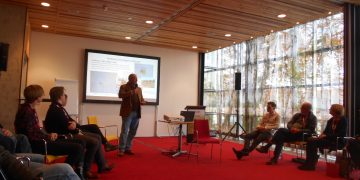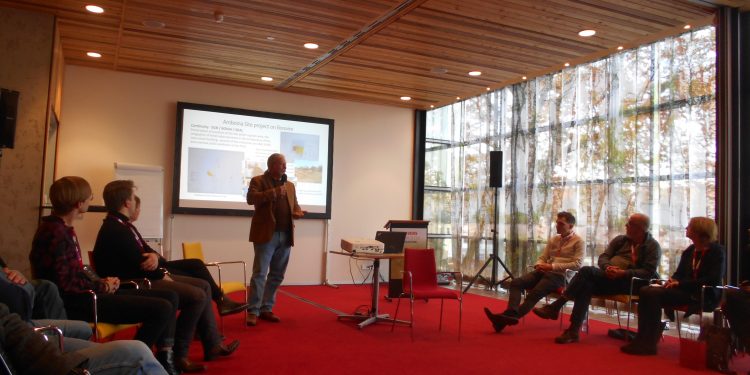PHILIPSBURG, Sint Maarten – From November 17-24, resident St. Maarten archaeologist, Dr. Jay Haviser, was in a National Congress session representing the Caribbean part of the Kingdom. The Netherlands National Archaeological Congress, popularly called the Reuvensdagen, has been taking place for 50 years, with 650 papers covering all archaeology happening in the Netherlands. Only in the last three years, have the Caribbean partners in the Kingdom been represented at Reuvensdagen. For this year, Dr. Haviser was representing SIMARC (St. Maarten) and made a presentation about recent archaeological research conducted on Bonaire. Together with the session organizer, Dr. Maaike de Waal of Leiden University, and also with a presentation by Fred van Keulen of SECAR (St. Eustatius) about his work on that island. The overall theme of this Caribbean session was Community Engagement, and its role in archaeology on the islands.
One of the primary themes of Haviser’s discussion was to present a structural model for effective positive cooperation between Caribbean and Netherlands partners in the archaeological research process on the islands. One of the key factors in his model, is to allow Netherlands experts to participate in research projects on the islands, however with appointed daily supervision by the individual island authorities. His case study on Bonaire, consisted of the Netherlands (in this case Ministry OCW) hiring Dutch contract archaeology experts, for mitigation work of a large prehistoric village monument site, in preparation for construction of a new school. These contracted Dutch experts (ARCHOL B.V.) then conducted the fieldwork under the supervision of Haviser, who was hired by the Bonaire Government. The basis of this model, is that in the islands we still need
scientific expert work, and until which time we have our own experts, we must import them. However, the local community and island governments must have the dignity, respect, and authority over the research being conducted by such contract experts. The Bonaire project proved to be a great success, and thus this model was being presented for consideration in future research on other islands, as well.
One of the more pointed comments by Haviser in the beginning of his presentation, was that the Caribbean Netherlands was not only pleased to be at this Reuvensdagen Congress, but that we MUST be represented at the
congress, with the BES islands being directly part of the Netherlands, and St. Maarten as partner within the Kingdom.


















